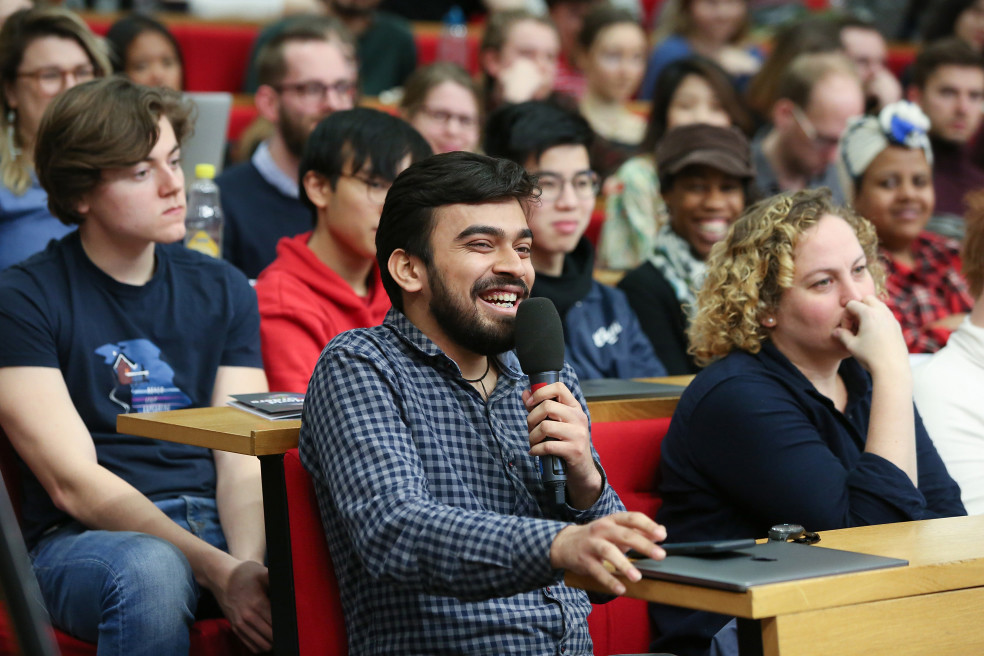MSc Development Management student, Aly Bryan, reflects on a recent development workshop led by Professor Jean-Paul Faguet who questions whether a “shock” to the fiscal system can lead to effective fiscal decentralisation.
Whenever our illustrious Programme Director Professor. Jean-Paul Faguet speaks, we listen. Not because of a (possibly misguided) sense that everything he says is true, but because he challenges us to think critically, to question our preconceived notions, to understand the nuances in development. His recent Thursday afternoon lecture on Intergovernmental Fiscal Relations was no different. Over the course of two hours, Dr. Faguet walked us through the arguments for and against fiscal decentralization, ultimately prompting that the reason fiscal decentralization often fails is because so many reforms are not seriously pursued. Central governments seek to retain residual authority, effectively handicapping the decentralization effort. So, the most effective way to push through fiscal decentralization is through a quick “shock” when possible. But why?
First, some background. Where political decentralization refers to the devolution of political authority from a central to a local authority (and so the reason you might vote for both local and national elections), fiscal decentralization does the same with the budget. Under a fiscally decentralized state, localities get a share of the central budget based on pre-determined factors (for example, budget could be allocated based on population). Once allocated, these funds are spent at the discretion of local governments.
There are many compelling reasons that decentralized financing will improve quality of governance. For one, public services – such as waste removal – are much better financed by local government (imagine if Theresa May in the UK or Justin Trudeau in Canada had to sign off on every trash collection). Fiscal decentralization also makes local government more responsive to its citizens who are better able to track whether the money that’s meant to be allocated to, say, repairing potholes is actually being spent to do so. Yet, despite calls for increased accountability and devolution of power to the local level – and in fact most countries claiming they are actively decentralizing – most developing countries maintain de facto centralization.
After all, it’s hard to give up power once you have it. And particularly for many leaders of developing countries, that power came about relatively recently. This phenomenon, termed the “endowment effect” by behavioral economists captures the way in which we ascribe greater value to a physical item (or in this case all of the trappings that come with power) when it is in our possession than when it is not. There is a natural tendency to undercut any attempts to take away that power. In situations where decentralization happens gradually, then, national actors will seek to preserve some of their authority, weakening the decentralization effort from the start.
Ultimately, what this comes down to is who can shape our communities. In development, it often seems like this question has one correct answer: communities should be shaped by the individual constituents that live in them. We are taught to pursue bottom-up approaches to development that actively engage with key stakeholders to facilitate transformative change from the inside out. We discuss provisions to preserve livelihoods and invest in capacity building on the ground.
But this slow, deliberative process does not work for fiscal decentralization. In fact, at least according to Dr. Faguet, fiscal decentralization is the exception that proves the rule. To effectively decentralize requires an exogenous “shock” to the system. No focus groups, no capacity building – at least not to start. Instead, policymakers need to find the window and take it, whether that be a transition of power or a moment of strategic policy change.
Alyssa (Aly) Bryan is an MSc Development Management student from the USA. Aly previously studied Political Science & Economics at Davidson College
The views expressed in this post are those of the author and in no way reflect those of the International Development LSE blog or the London School of Economics and Political Science.





